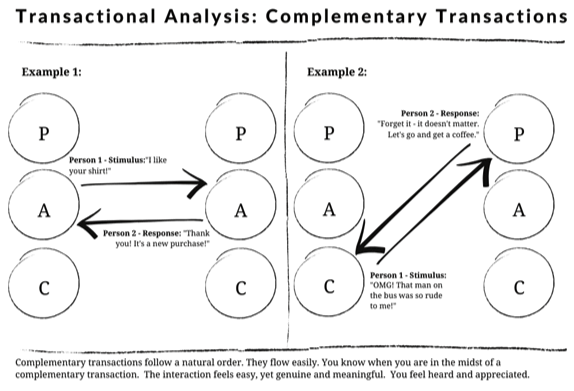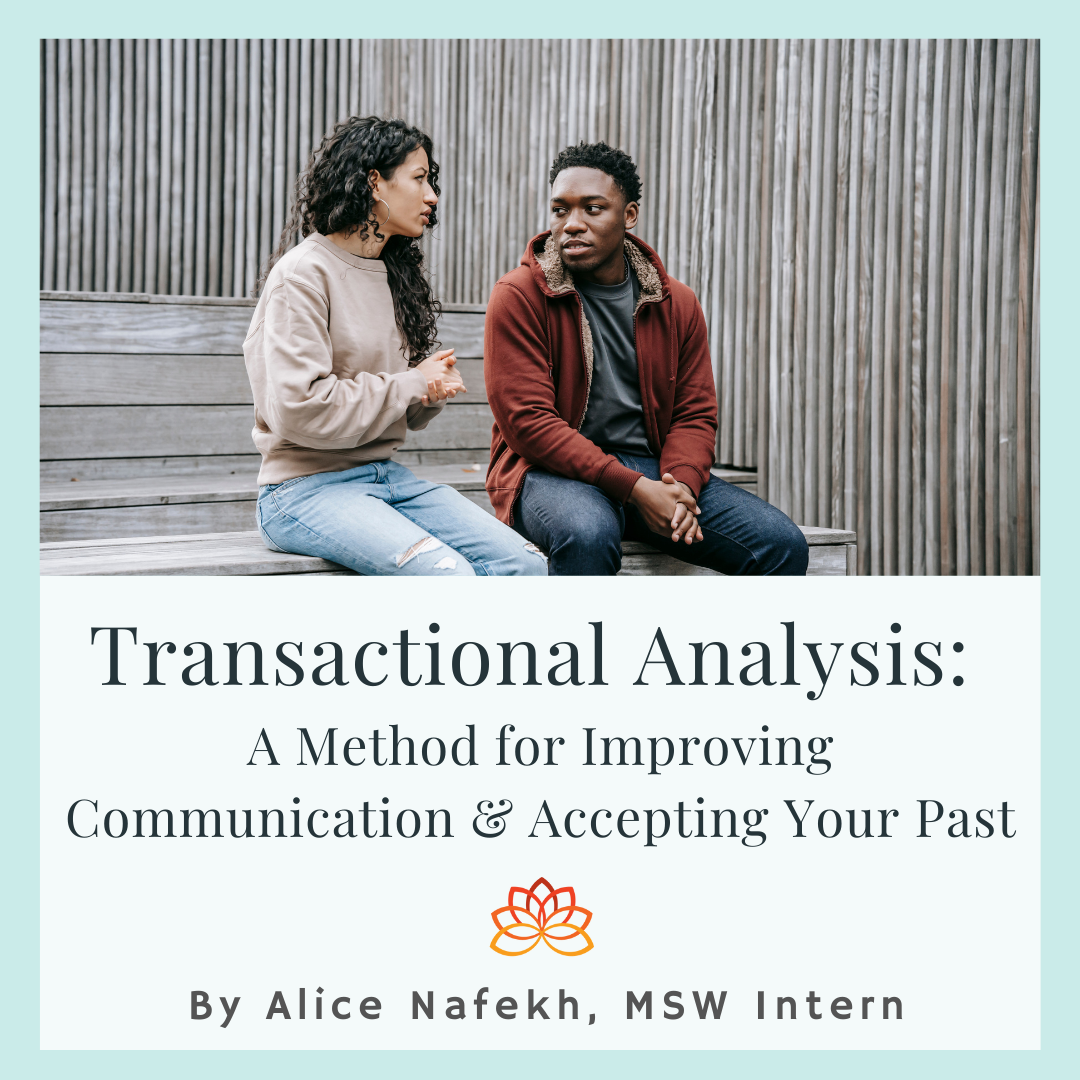Transactional Analysis: A Method for Improving Communication & Accepting Your Past
by Alice Nafekh, MSW Intern
When someone starts up a conversation with us, how do we know how to respond? What helps us determine what tone of voice or body language to use when confronting someone about an issue or responding to their comment? How we choose to communicate in certain situations is often influenced by the interactions we have observed and been a part of in childhood and adulthood. The theory that our interactions with others is determined by our past is called transactional analysis. The main idea behind this theory is that we take on certain roles(or ego states) in our social interactions and each role has a unique way of responding to a situation that is informed by our past experiences. In other words, our interactions with others are a result of our past experiences and each of us commonly fall into behavioral patterns that were built from memories of good or bad communication.
These roles we fall into, or “ego states”, can be divided into 3 different categories:
- Parent: When we are in our parent ego state our behavior is influenced by our interpretation of parent or caretaker behaviors. If your parents became passive aggressive or violent when they were angry, you’re likely to mimic their behavior when you get upset. If your parents were empathetic and patient when we were sad or hurt, you’ll likely have a similar reaction when someone you care for is hurt. We often don’t realize that we fall into the behavior patterns of our parents, but their behaviors set up the blueprint for how we interact with others in adulthood.
- Child: When we are in our child ego state we respond to others in a similar way to when we were children. If you would get upset easily and throw tantrums as a child, you may feel the need to revert back to this behavior when facing frustration as an adult. When in this ego state, your own wants and needs are prioritized and certain key memories from childhood, like the time you got in trouble in gym class or went on adventures with your neighbor, are used to inform your behavior in adulthood.
- Adult: In the adult ego state we are fully present in the moment and free from insecurities or inhibitions from our past. This is considered the most objective state and the one we should try to be in when we feel ourselves falling into the pattern of our parent or child ego state.
According to transactional analysis, everyone has these ego states and the one we fall into can determine how effectively we communicate. Our ego state can also influence the ego state of the person we’re communicating with and how they may respond.
The example below shows an interaction between two people. An arrow is drawn from the ego state of the person initiating the conversation to the ego state it triggers in the responder.
In the interaction on the left, both parties are communicating from their adult ego state and respond to one another in an objective and fully present way. It’s safe to say that this is a healthy interaction where both parties involved are responding to each other in the moment free of any reactive emotions.
The interaction on the right demonstrates a situation where each party responds from a more emotional ego state. The person on the left was upset by the man on the bus which caused them to shift into their child ego state and respond in a way they would have when they were young. The person on the right responded to them in a way that their parents or an authority figure likely would have responded to them when they were a child. This results in an interaction that’s heavily influenced by past experiences of each person.

So how can we use this information?
When we become aware of the ego states we fall into and the patterns of behavior that go along with them, we can begin to build an awareness of our reactions and un-learn our negative behavior patterns. If we become more aware that a condescending comment triggers our child ego state and causes us to isolate, we can attempt to shift ourselves into the adult ego state and interpret the situation with less influence from our past. Although changing our automatic behaviors is something that will take time and practice, building our awareness is the first step and can help us be more effective communicators and improve our relationships.
If you would like to learn more about Transactional Analysis visit https://www.theberne.com/
Check out more of our blogs here
